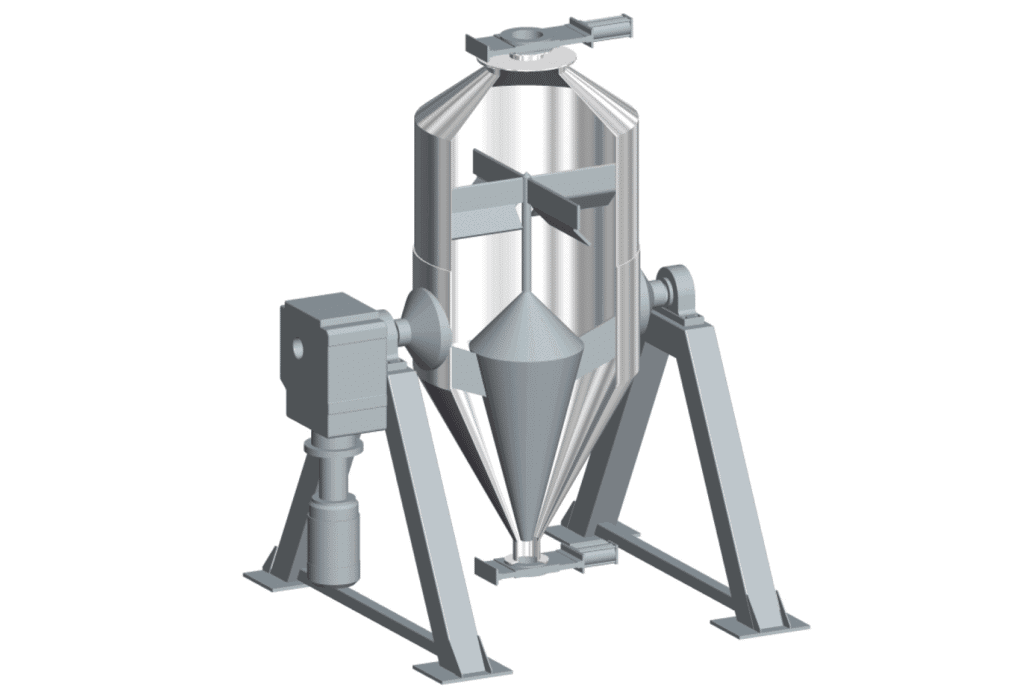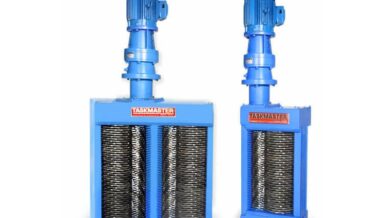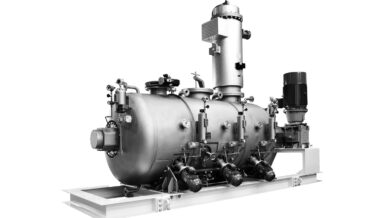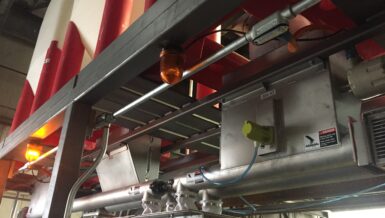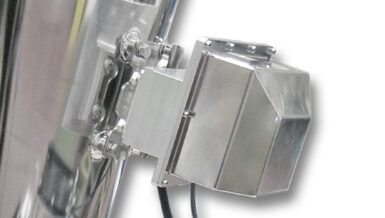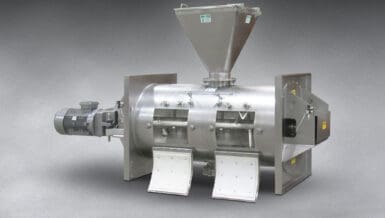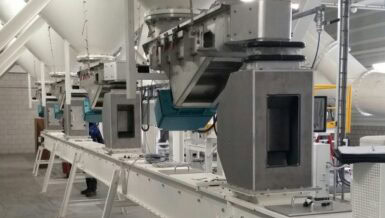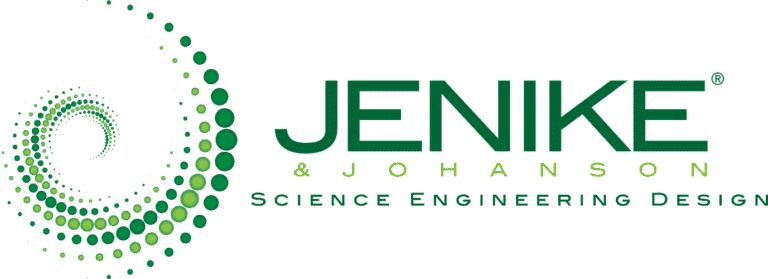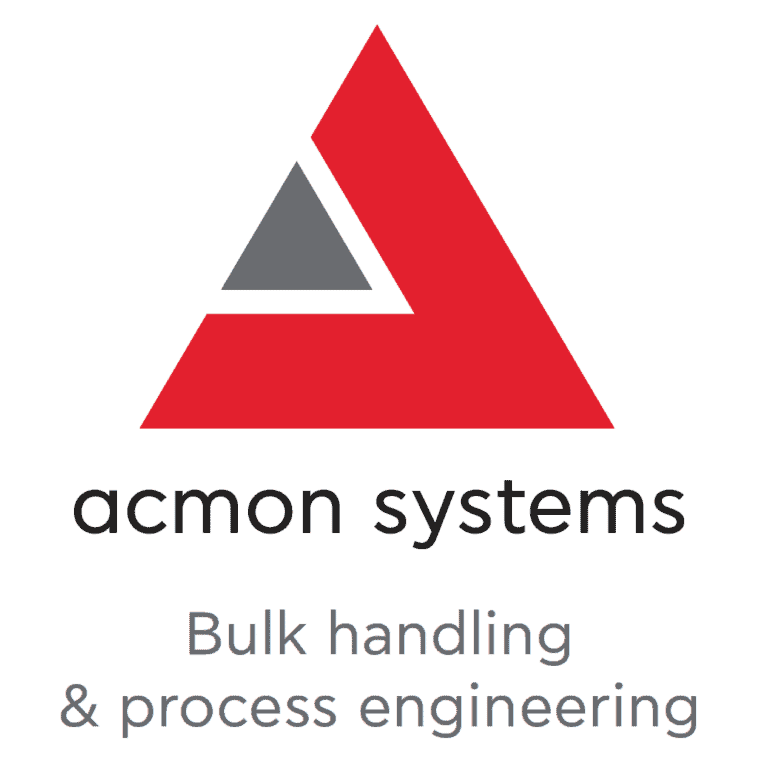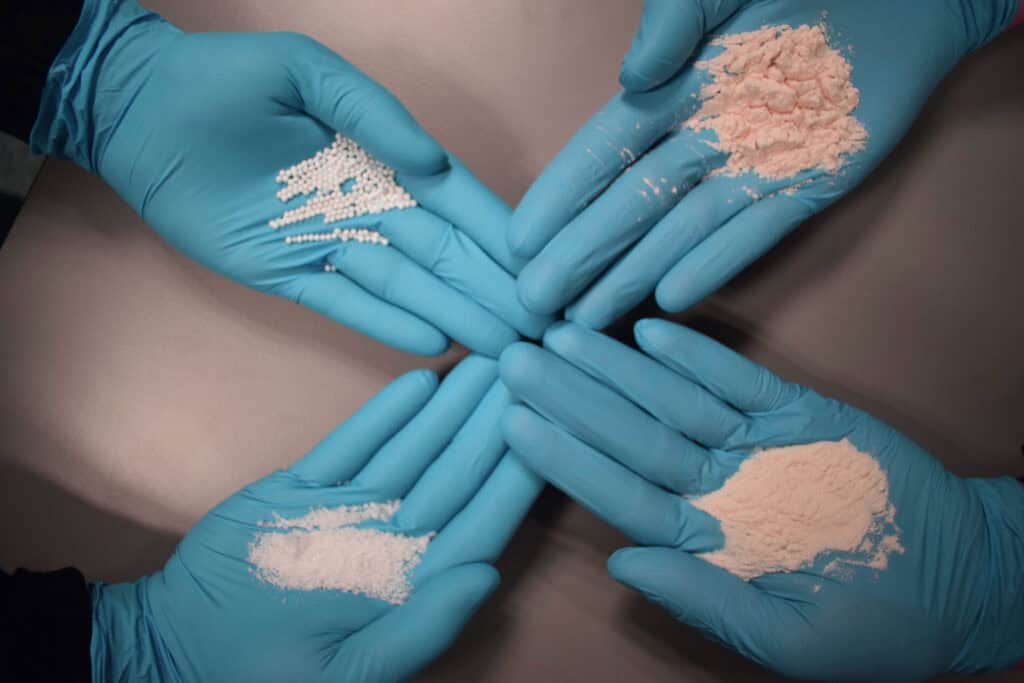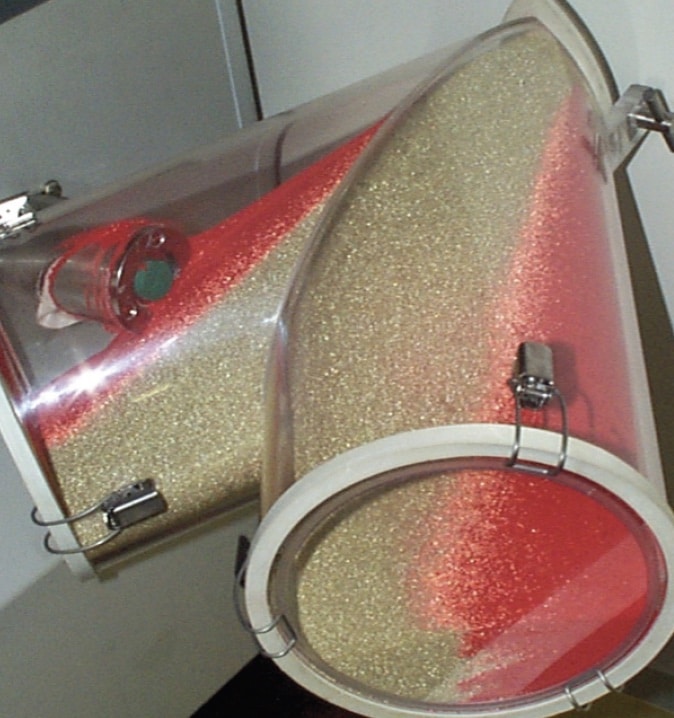
After several weeks of testing equipment, the client found that a V-blender could not provide the required close blending uniformity.
Samples taken from the blender indicated that the mix was not adequately blended.
Furthermore, samples taken from the blender outlet indicated that significant segregation occurred during discharge from the blender.
Solution
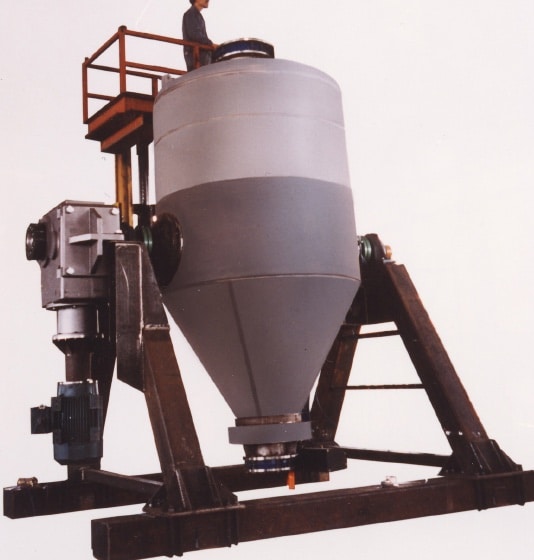
After building a model of the commercial blender, we confirmed that it was not capable of producing the required blend uniformity. We then experimented with a series of inserts which, while significantly improving the blender’s operation, still did not meet the client’s requirements.
We then optimized a BLENSERT® tumbler (a cone-in-cone design that has improved segregation control over a typical mass flow container), to produce a configuration which fully satisfied our client’s requirements for the material discharged from the blender.
Results
Following this model study, we were asked to produce a detailed design of a full scale unit having a live capacity of 200 cu. ft. Since the project was fast-track and needed to be done right the first time, we were subsequently awarded a contract to fabricate and supply three BLENSERTS®. This equipment has been operating since installment with excellent results. Blend uniformity was as designed and the blend remained intact through downstream equipment.




